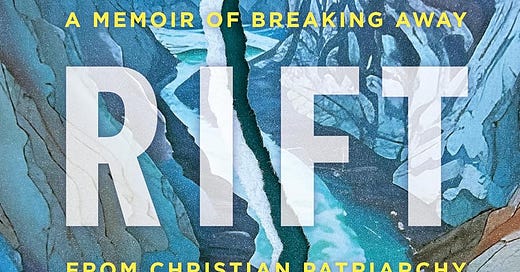A time to leave, an author interview
Cait West talks about her new book, *Rift: A Memoir of Breaking Away from Christian Patriarchy*
Keep reading with a 7-day free trial
Subscribe to Church Blogmatics by Beth Felker Jones to keep reading this post and get 7 days of free access to the full post archives.




